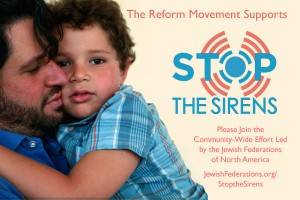We are on the final day of our CCAR Israel mission of solidarity and learning. I have not written about most of my experiences and I have refrained from posting anything except for some re-posting of pictures to Facebook that my colleagues have taken, commemorating our time in various places. Although I want to share the extraordinary and incredible experiences, I also want to give them some time to sit inside me as I ruminate and try make sense of them. In some I will be successful and in some I will not.
These days have been filled with visits and talks and discussions and analyses. We packed as much as we could into our days and often into the nights as well. There is much pain here as we struggle to remember who we are while fighting to make a future possible. The actions we take now are the foundation upon which we build that future. Often building is difficult and now in this time of war it is acutely so. The price is paid in blood and also in our souls. If we are the caretakers of the world for our next generation, what is it that we will leave to them? The answer to that question is being forged now.
The singular most important thing I could do was be here to express my solidarity with the people and the State of Israel. So I came. The gratitude was palpable. And for that I am grateful as well. But now it is time to bring it back home and share what I have experienced. I hope to do justice to that sacred task.
There is a time for every thing under heaven. Now is the time to express support, reflect on what is happening and then engage in what is to be done, once the immediacy of this war is concluded. There is much to do tomorrow. But for today, I support my people and pray that all may live in peace.

